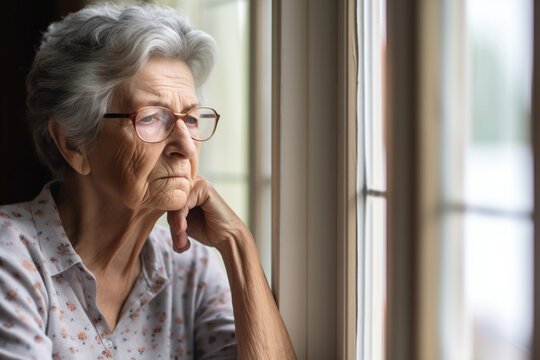1. Persistent Sadness or Low Mood
One of the most common signs of depression in seniors is a persistent feeling of sadness or a low mood. This isn’t just an occasional feeling of being down but a pervasive mood that lasts for weeks or even months. It may manifest as a sense of hopelessness or helplessness, leading seniors to feel that their situation will never improve. According to the National Institute of Mental Health, this symptom is often overlooked in seniors because it can be attributed to the aging process or other health issues. However, if you notice a consistent pattern of sadness, it’s crucial to address it.
2. Loss of Interest in Activities
Seniors who are experiencing depression may lose interest in activities they once enjoyed, such as hobbies, social gatherings, or even spending time with family. This loss of interest can lead to social isolation, further exacerbating feelings of loneliness and depression. According to the Centers for Disease Control and Prevention, social engagement is critical for mental health, especially in older adults. If a senior seems disinterested or withdrawn from activities they used to love, it might be a sign of depression.
3. Changes in Appetite and Weight
Depression can significantly impact appetite, leading to noticeable changes in weight. Some seniors may lose interest in eating, resulting in weight loss, while others may overeat as a form of comfort, leading to weight gain. The Mayo Clinic notes that these changes in appetite and weight can be indicators of depression, particularly if they occur suddenly or without a clear cause. Monitoring these changes can help in identifying potential mental health issues.
4. Sleep Disturbances
Sleep disturbances, including insomnia or excessive sleeping, are common in depressed seniors. They may find it difficult to fall asleep, stay asleep, or may wake up too early and be unable to return to sleep. Alternatively, some may sleep more than usual, using it as an escape from their feelings. According to the Sleep Foundation, poor sleep quality can worsen depression symptoms and affect overall health. If a senior is experiencing significant changes in their sleep patterns, it may be time to consult a healthcare provider.
5. Fatigue or Lack of Energy
Another warning sign of depression in seniors is a persistent lack of energy or chronic fatigue. Even after a full night’s sleep, they may feel exhausted and lack the motivation to engage in daily activities. This fatigue is not just physical but can also be mental, making it challenging for seniors to concentrate or make decisions. The Psychology Today emphasizes the importance of recognizing this symptom, as it can significantly impact a senior’s quality of life and independence.
6. Difficulty Concentrating or Making Decisions
Depression can impair cognitive functions, making it difficult for seniors to concentrate or make decisions. They may become easily distracted, forgetful, or indecisive about even minor matters. This cognitive decline can be mistaken for age-related memory issues or the early stages of dementia. However, if these symptoms are accompanied by other signs of depression, it’s essential to consider depression as a possible cause. The Alzheimer’s Association provides resources to differentiate between dementia and depression-related cognitive dysfunction.
7. Feelings of Worthlessness or Guilt
Seniors with depression may experience intense feelings of worthlessness or guilt. They may feel like they are a burden to their family or regret past decisions, which can lead to a cycle of negative thinking. This self-critical mindset is particularly concerning because it can increase the risk of suicidal thoughts. The Substance Abuse and Mental Health Services Administration stresses the importance of addressing these feelings, as they can significantly impact a senior’s mental health and well-being.
8. Increased Use of Alcohol or Other Substances
Some seniors may turn to alcohol or other substances as a way to cope with depression. This self-medication can provide temporary relief but ultimately worsens depression symptoms and can lead to substance abuse issues. According to the National Institute on Alcohol Abuse and Alcoholism, substance use in older adults is a growing concern and can complicate the treatment of depression. If you notice a senior increasing their alcohol consumption or using other substances, it may be a sign of underlying depression.
9. Physical Aches and Pains
Depression can manifest as physical symptoms, such as unexplained aches and pains. Seniors may complain of headaches, stomachaches, or other chronic pain without a clear medical cause. These physical symptoms can often lead to frequent doctor visits and unnecessary medical tests. The Harvard Health highlights the link between depression and physical pain, emphasizing the need for a holistic approach to treatment that addresses both mental and physical health.
10. Suicidal Thoughts or Actions
One of the most serious warning signs of depression in seniors is suicidal thoughts or actions. Seniors may express feelings of wanting to die or may even attempt suicide. This is a medical emergency that requires immediate intervention. The National Suicide Prevention Lifeline offers resources and support for those in crisis. It’s crucial to take any mention of suicide seriously and seek professional help without delay.
Conclusion
Recognizing the warning signs of depression in seniors is crucial for their well-being and quality of life. While aging brings various challenges, depression is not a normal part of the aging process and should not be overlooked. By being aware of these signs, you can take proactive steps to support your loved ones and ensure they receive the care and treatment they need. If you suspect a senior in your life is experiencing depression, consult a healthcare professional to discuss the best course of action.

